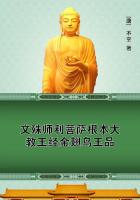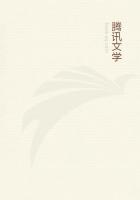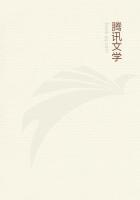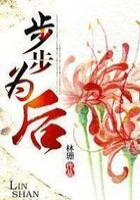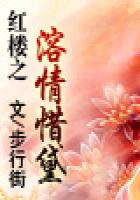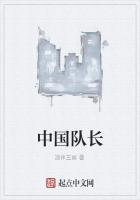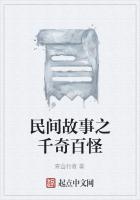Soc.And if rightness attaches to any of them, should we not speak of a right opinion or right pleasure; and in like manner of the reverse of rightness?
Pro.Certainly.
Soc.And if the thing opined be erroneous, might we not say that opinion, being erroneous, is not right or rightly opined?
Pro.Certainly.
Soc.And if we see a pleasure or pain which errs in respect of its object, shall we call that right or good, or by any honourable name?
Pro.Not if the pleasure is mistaken; how could we?
Soc.And surely pleasure often appears to accompany an opinion which is not true, but false?
Pro.Certainly it does; and in that case, Socrates, as we were saying, the opinion is false, but no one could call the actual pleasure false.
Soc.How eagerly, Protarchus, do you rush to the defence of pleasure!
Pro.Nay, Socrates, I only repeat what I hear.
Soc.And is there no difference, my friend, between that pleasure which is associated with right opinion and knowledge, and that which is often found in all of us associated with falsehood and ignorance?
Pro.There must be a very great difference, between them.
Soc.Then, now let us proceed to contemplate this difference.
Pro.Lead, and I will follow.
Soc.Well, then, my view is-
Pro.What is it?
Soc.We agree-do we not?-that there is such a thing as false, and also such a thing as true opinion?
Pro.Yes.
Soc.And pleasure and pain, as I was just now saying, are often consequent upon these upon true and false opinion, I mean.
Pro.Very true.
Soc.And do not opinion and the endeavour to form an opinion always spring from memory and perception?
Pro.Certainly.
Soc.Might we imagine the process to be something of this nature?
Pro.Of what nature?
Soc.An object may be often seen at a distance not very clearly, and the seer may want to determine what it is which he sees.
Pro.Very likely.
Soc.Soon he begins to interrogate himself.
Pro.In what manner?
Soc.He asks himself-"What is that which appears to be standing by the rock under the tree?" This is the question which he may be supposed to put to himself when he sees such an appearance.
Pro.True.
Soc.To which he may guess the right answer, saying as if in a whisper to himself-"It is a man."Pro.Very good.
Soc.Or again, he may be misled, and then he will say-"No, it is a figure made by the shepherds."Pro.Yes.
Soc.And if he has a companion, he repeats his thought to him in articulate sounds, and what was before an opinion, has now become a proposition.
Pro.Certainly.
Soc.But if he be walking alone when these thoughts occur to him, he may not unfrequently keep them in his mind for a considerable time.
Pro.Very true.
Soc.Well, now, I wonder whether, you would agree in my explanation of this phenomenon.
Pro.What is your explanation?
Soc.I think that the soul at such times is like a book.
Pro.How so?
Soc.Memory and perception meet, and they and their attendant feelings seem to almost to write down words in the soul, and when the inscribing feeling writes truly, then true opinion and true propositions which are the expressions of opinion come into our souls-but when the scribe within us writes falsely, the result is false.
Pro.I quite assent and agree to your statement their Soc.I must bespeak your favour also for another artist, who is busy at the same time in the chambers of the soul.
Pro.Who is he?
Soc.The painter, who, after the scribe has done his work, draws images in the soul of the things which he has described.
Pro.But when and how does he do this?
Soc.When a man, besides receiving from sight or some other sense certain opinions or statements, sees in his mind the images of the subjects of them;-is not this a very common mental phenomenom?
Pro.Certainly.
Soc.And the images answering to true opinions and words are true, and to false opinions and words false; are they not?
Pro.They are.
Soc.If we are right so far, there arises a further question.
Pro.What is it?
Soc.Whether we experience the feeling of which I am speaking only in relation to the present and the past, or in relation to the future also?
Pro.I should say in relation to all times alike.
Soc.Have not purely mental pleasures and pains been described already as in some cases anticipations of the bodily ones; from which we may infer that anticipatory pleasures and pains have to do with the future?
Pro.Most true.
Soc.And do all those writings and paintings which, as we were saying a little while ago, are produced in us, relate to the past and present only, and not to the future?
Pro.To the future, very much.
Soc.When you say, "Very much," you mean to imply that all these representations are hopes about the future, and that mankind are filled with, hopes in every stage of existence?
Pro.Exactly.
Soc.Answer me another question.
Pro.What question?
Soc.A just and pious and good man is the friend of the gods; is he not?
Pro.Certainly he is.
Soc.And the unjust and utterly bad man is the reverse?
Pro.True.
Soc.And all men, as we were saying just now, are always filled with hopes?
Pro.Certainly.
Soc.And these hopes, as they are termed, are propositions which exist in the minds of each of us?
Pro.Yes.
Soc.And the fancies of hope are also pictured in us; a man may often have a vision of a heap of gold, and pleasures ensuing, and in the picture there may be a likeness of himself mightily rejoicing over his good fortune.
Pro.True.
Soc.And may we not say that the good, being friends of the gods, have generally true pictures presented to them, and the bad false pictures?
Pro.Certainly.
Soc.The bad, too, have pleasures painted in their fancy as well as the good; but I presume that they are false pleasures.
Pro.They are.
Soc.The bad then commonly delight in false pleasures, and the good in true pleasures?
Pro.Doubtless.
Soc.Then upon this view there are false pleasures in the souls of men which are a ludicrous imitation of the true, and there are pains of a similar character?
Pro.There are.

